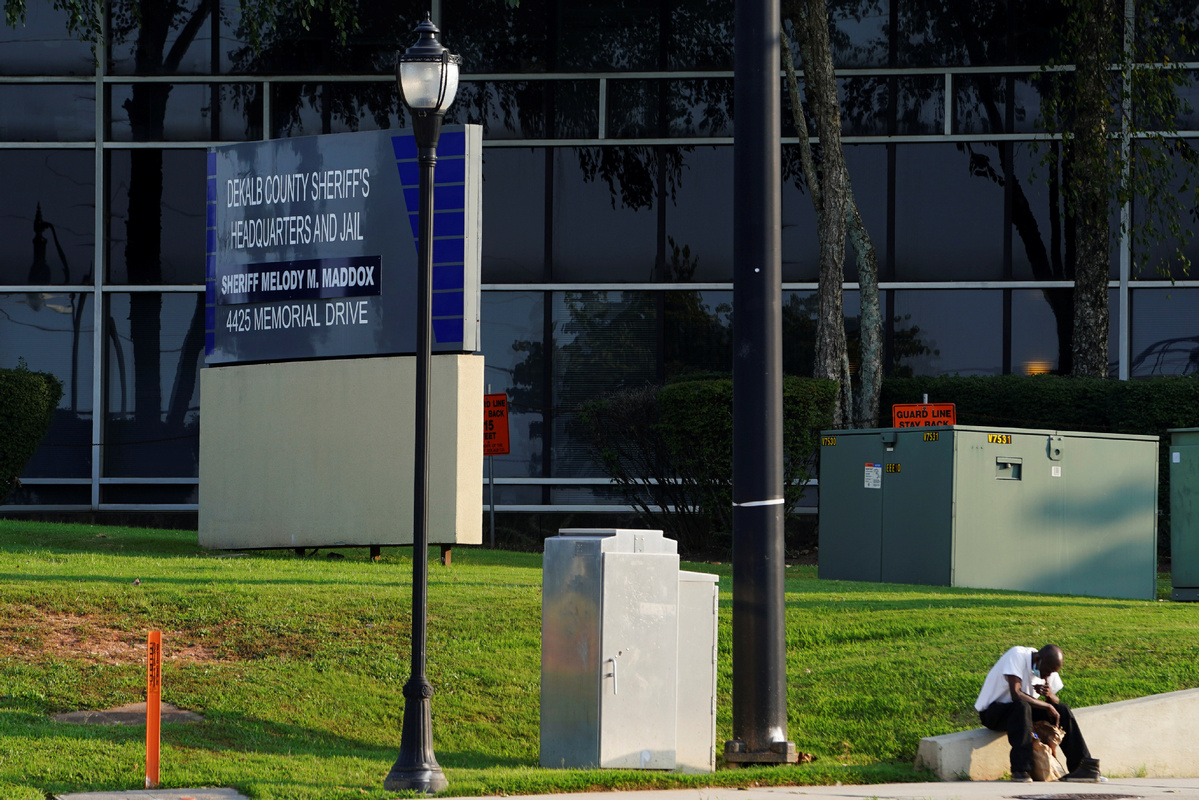US to phase out private-prison contracts
By LIA ZHU in San Francisco | chinadaily.com.cn | Updated: 2021-02-01 11:07

The United States, with the largest prison population in the world, is phasing out the use of private prisons, a move advocates are applauding but also criticizing as not shrinking the federal prison system but just transferring inmates to public facilities.
President Joe Biden, within the first two weeks of his presidency, signed an executive order directing the Justice Department not to renew its contracts with private prisons, to "reduce profit-based incentives to incarcerate".
The order also notes the disproportionate impact of mass incarceration on people of color.
Biden's presidential campaign made a number of commitments on criminal justice reform, one of which was ending the use of private prisons. But few details have been released about the executive order, such as the timing of the phase-out.
Private prisons have long been used by state and federal authorities. Advocates have decried the use of the private detainment sector, arguing that the facilities put inmates at greater risk for abuse. A 2016 report by the Justice Department found private prisons see high rates of assault, use of force incidents and lockdowns.
More than 2 million people are currently incarcerated in the US, which represents a rate of 698 per 100,000 residents — a rate higher than any other nation, according to a 2020 Prison Policy Initiative report.
The private prisons are a billion-dollar industry in the US. GEO Group and CoreCivic are two of the biggest private prison companies in the US. The two operate a majority of the facilities under the Bureau of Prisons (BOP).
GEO Group, in statement, called Biden's order "a solution in search of a problem" and said that the BOP had already chosen to not renew some private prison contracts in the past few months.
Facing increased scrutiny, the for-profit prison industry has established an advocacy group "Day 1 Alliance", with a focus on changing public opinion that has soured on the industry.
According to the BOP statistics, there are 11 private prisons currently under contract by the Justice Department — five in Texas, two in Georgia, and one each in Oklahoma, Pennsylvania, Michigan and North Carolina.
Among the nearly 152,000 people held in federal custody, more than 14,000 are housed at privately operated facilities, according to the BOP. The executive order directly affects approximately 10 percent of all prisoners incarcerated federally.
"The federal government is their largest single customer. And also, the state prison systems tend to look to the federal system as a model, as a leader," David Fathi, director of the National Prison Project at the American Civil Liberties Union, told National Public Radio.
John Pfaff, a law professor at the Fordham University School of Law in New York City, criticized Biden's order as being "symbolic" with "little impact on any issue of racial justice and the system".
"They'll have time to transfer these people from private facilities to non-private ones," Pfaff told NBC News. "This is not about shrinking the footprint of the federal prison system; it's just about transferring people to public facilities.
"The symbolism carries the very real risk of making us blind to the nearly identical incentives of the public prison sector, and the public side is so much vaster in scope," he said.
California, the first state in the US to cut ties with private prisons, started banning for-profit prisons and immigration detention centers starting last year. The state will phase out all existing contracts by 2028 for similar reasons mentioned in Biden's order.
By contrast, the Trump administration sued California last year for "interfering" with the federal prison and immigration detention systems. The judge later ruled in favor of California, saying the state's ban is constitutional.
According to the ruling, private prison companies cannot open new prisons or immigration detention facilities in California. They are also banned from extending or renewing existing contracts.
Like California, a growing number of states are banning private prisons.
The effort to end the Federal Bureau of Prisons' contracts with private prison companies began under the Obama administration in 2016 and was quickly rescinded by the Trump administration in 2017.
The Justice Department's use of private facilities increased during Donald Trump's presidency. In late 2019, the US Immigration and Customs Enforcement signed four contracts with private prison companies totaling $6.5 billion for immigration detention.
In four years, the Trump administration opened more than 40 new immigrant detention facilities and expanded the number of people in the system by approximately 50 percent, wrote Eunice Cho, a senior staff lawyer with the ACLU, in an article.
She also pointed out that Biden's order doesn't apply to immigration detention, where "more than 81 percent of immigrants in detention were held in facilities owned or operated by private prison companies, a record high".
The growth of the immigration detention system "overwhelmingly benefited private prison corporations, as almost all of the new facilities were owned and/or operated by for-profit companies", she said.
























